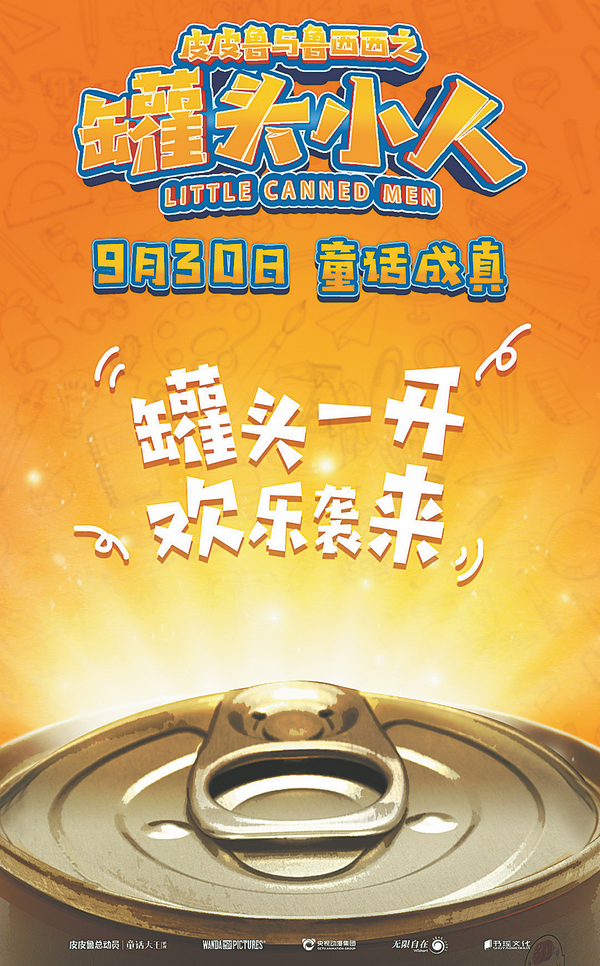

As a result, Zheng suspended the authorization of adaptation rights to his work, until his son established a company and persuaded his father to relax the licensing restrictions.
Additionally, Zheng's younger daughter has studied cinema at the University of California in Los Angeles. "I once wrote a fairy tale about bacteria. My daughter liked it very much and recommended that she should helm the adaptation. I believe it would be a sweet and great moment if one day I can stand on a stage and promote her film," says Zheng.
Having turned 66 in June, the novelist has demonstrated his talent to "shift" from page to the silver screen.
In a scene near the end of Little Canned Men, Zheng enjoys a cameo and can be seen fishing on a riverbank, providing a mysterious, but key, detail that hints at a possible sequel. He says the scene is inspired by late comic book writer Stan Lee's cameo appearances in the movies of the Marvel Cinematic Universe.
A widely circulated story about Zheng is that he once purchased 10 apartments in Beijing to use them as makeshift warehouses to store letters from fans.
"It's true," confirms the author. He says that the housing price was 1,400 yuan ($217) per square meter when he purchased the properties in early 1990s.
"Many people say I have earned a lot of money from the soaring property prices, but it's not what I really care about. I won't sell these apartments, which are still being used to store the more than 1 million letters, which are mostly packed in cloth bags," says Zheng.
"For me, the most valuable treasure is my readers. I cherish the words written by them," he says. But such handwritten mail has become scarce because of the rapid expansion of the internet in China.
The writer has embraced the digital medium, becoming an "internet celebrity" with a passion for social media platforms like Sina Weibo and Douyin. He has launched a special online event whereby he is seeking 10 readers whose letters were randomly selected from the bags.
Most of the letters were sent between late 1980s and mid-1990s. The digital era has helped Zheng to quickly find the fans, who are now working in various fields, from a company head and a doctor to a government official.
One of the letters that most impressed Zheng was from a teenager who tried to take a photograph with Zheng while buying one of his books at a Beijing bookstore in 1995.